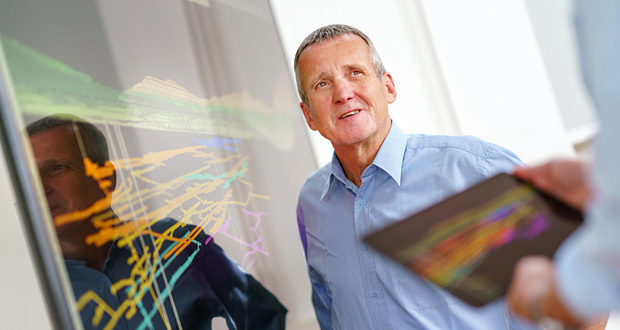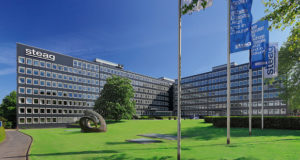We are surrounded by standards in our day-to-day lives. We all use the designation A4, e. g., as a standardised value for the height and width of paper sheets. Yet when it comes to standardising something worldwide, this is where the International Organization for Standardization or ISO steps in. There are ISO standards for almost all sectors – from quality management, through physical units, all the way up to languages or correct dimensioning of sea containers (ISO 668) and soon also for post-mining. On the initiative of the German Institute for Standardization (DIN) and the Civil Engineering Standards Committee, a new committee has been established to draw up an international standard for the management of post-mining areas. Experts from the Research Institute of Post-Mining (FZN) at the TH Georg Agricola University (THGA), Bochum/Germany, are also involved in this.
“There has actually been considerable interest worldwide in standardising the handling of post-mining issues for quite some time,” explains Prof. Peter Goerke-Mallet, who is contributing his expertise in the new international committee together with Sebastian Westermann from the FZN (Figure 1). “Around the world, former mining operations are leaving behind a wide range of challenges and unresolved issues, often with a negative impact on both, people and the environment. However, the post-mining era also offers many interesting prospects. But for these to be utilised as effectively as possible, we need a standardised way to manage mining operations that have been decommissioned.”
Germany is a post-mining country, and thereby an international forerunner in terms of structural transformation, risk management, land recycling and similar. This experience is very much in demand. Alongside the experts from the FZN, representatives from mining and environmental authorities, as well as mining companies and consulting firms are all members of the international team of consultants. Under the leadership of Australian post-mining expert Corinne Unger, they will be drawing up a universal standard on “managing mining legacies” over the course of the next few years. The common objective is clear: “The focus is on addressing the consequences of mining operations as comprehensively as possible in order to reduce their risks and develop the opportunities of post-mining,” comments Westermann. “We are therefore not only examining the ecological and economic issues, but also the social issues in the environment of former mining sites and how they can be further optimised in future.”
The cooperation is also delivering new opportunities for the FZN itself. The global challenges are providing the scientists with new impetus and information for further research projects. (THGA/Si.)

